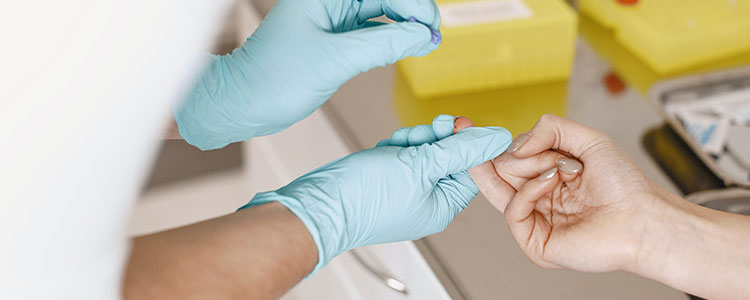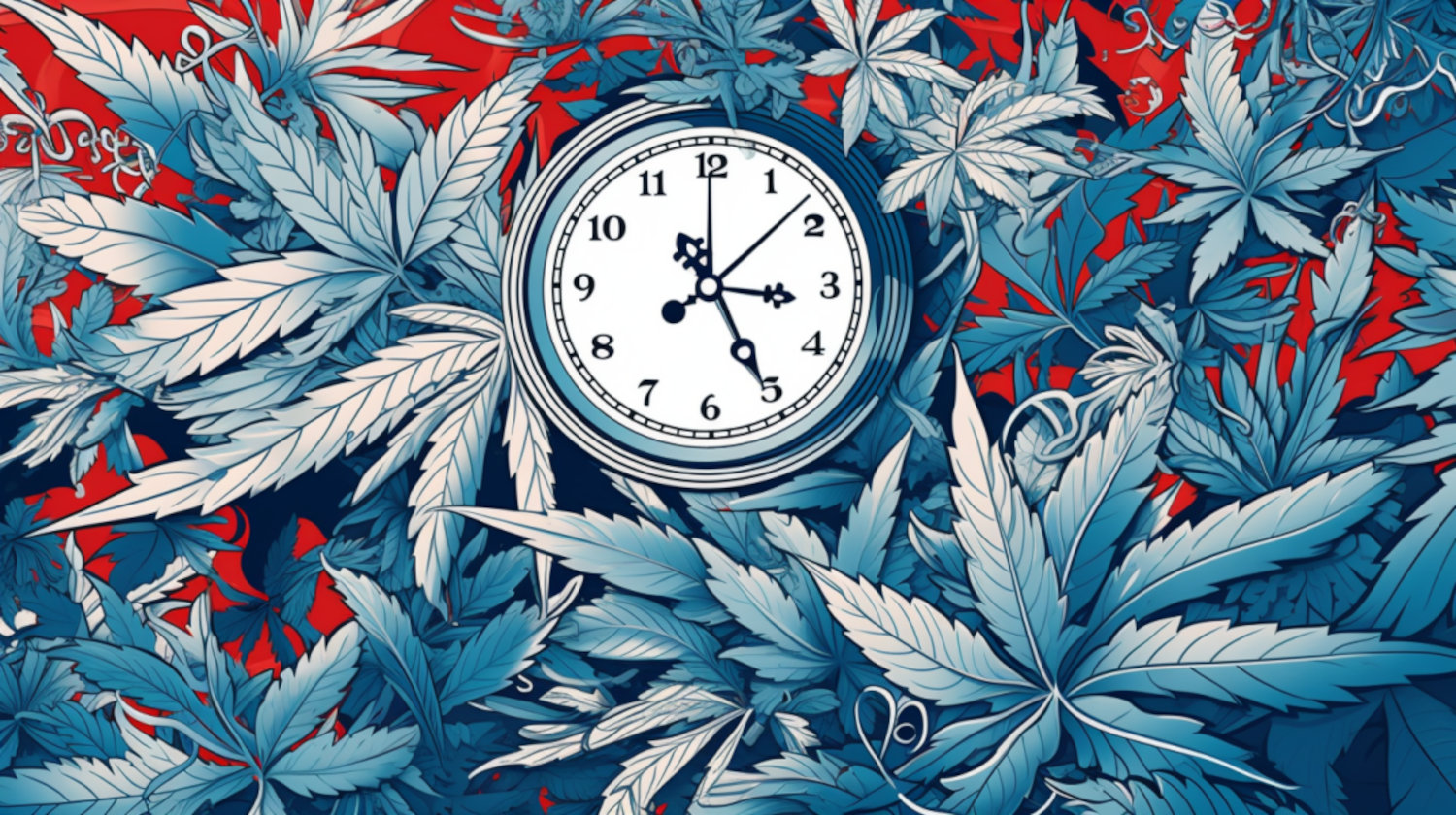When you get a cut, your blood naturally clots to help it heal. But when clots form in the wrong places, like deep inside a vein, they can lead to serious health problems. That’s why medications like Eliquis, a type of blood thinner, are often prescribed to reduce the risk of harmful clots.
At the same time, some have turned to CBD for general wellness or to support certain health goals. But is it safe to use both CBD and Eliquis?
While research is still developing, some early evidence suggests there may be interactions between CBD and medications like Eliquis. It’s important to speak with your doctor if you're considering combining them to better understand the potential risks.
What is Eliquis?
Eliquis is a prescription blood thinner used to help prevent dangerous blood clots. Doctors often prescribe it for people with certain heart conditions, like atrial fibrillation (AFib) or deep vein thrombosis (DVT), that raise the risk of stroke or other serious complications.
According to the CDC, about 5.5% of U.S. adults have a cardiovascular condition. Eliquis, also known by its generic name apixaban, is one of the most commonly prescribed medications for these types of issues—used by more than 3 million Americans.
Eliquis works by targeting an enzyme in the blood called Factor Xa (pronounced “factor ten A”), which plays a key role in forming clots. By blocking this enzyme, Eliquis helps reduce the risk of harmful clotting that could lead to a stroke, heart attack, or other problems.
This medication is also used after certain surgeries, like hip or knee replacements, to lower the chance of clotting during recovery.
What is Factor Xa?
Factor Xa (pronounced “factor ten A”) is a natural enzyme in your blood. It helps start a chain reaction that leads to clotting. When you get a cut, this process helps stop bleeding.
But inside the body, unwanted clots can cause problems, like strokes or blockages. Medications like Eliquis block Factor Xa to lower the chance of dangerous clots forming.1
Combining CBD and Eliquis: What the Latest Research Says

CBD has become more popular in recent years. Some patients report using it to help with symptoms like pain, anxiety, and trouble sleeping.2 However, CBD can also affect how certain medications work in the body. This includes blood thinners like Eliquis.
Many medications are broken down in the liver by a group of enzymes called CYP450. CBD can interfere with these enzymes, which may change how much of a drug your body absorbs. This could result in too much (or even too little) of the medication in your system.
Eliquis (apixaban) is a blood thinner that helps prevent harmful clots. It's processed by the liver using a specific enzyme. This enzyme converts Eliquis into a form the body can use. If something slows down this process, Eliquis may stay in the body longer than intended, increasing the risk of side effects like bleeding. Some known drug interactions with Eliquis include NSAIDs, other anticoagulants, and Paxlovid (used to treat COVID-19).1
CBD is also broken down by the CYP3A4 enzyme and may even inhibit it. This means that if CBD and Eliquis are taken together, Eliquis may not break down as expected. This could increase its levels in the bloodstream and may make blood thinner than intended, raising the risk of bleeding.3,4
Is CBD a Blood Thinner?
Although clinical research is underway, scientists don’t have a conclusive answer whether CBD is a blood thinner.
The anti-inflammatory effects of CBD are well-documented. Although CBD’s relaxation of blood vessels lowers blood pressure by improving blood flow, it may not change the fluidity of the blood itself.5
Another study found that the cannabinoids THC and CBN may both lessen blood coagulation in the body. Specifically, researchers found that THC reduced platelet aggregation, which is the clumping together of white blood cells to form a clot.6 While CBD alone may not have blood-thinning effects, it indicates that the cannabinoids in full-spectrum CBD products may have an anti-coagulation impact.
Are You Considering Using CBD and Eliquis?

Combining cannabis with any substance or medication carries its own risks. Cannabis research is still in its earliest stages, and there is a lot that researchers still don't know. That leaves the door open for unexpected interactions with other substances. If you are considering combining cannabis with any other substance or medication, speak to your doctor for proper medical guidance.
Likewise, stopping the use of a prescribed medication can lead to unintended consequences. Many medications take time to build up in the body. Stopping suddenly can cause unpleasant and potentially serious or even fatal side effects. If you'd like to stop using or replace a medication, you need to follow the guidance of your medical provider to make any approved adjustments safely.
References
- Byon W, Garonzik S, Boyd RA, Frost CE. Apixaban: A Clinical Pharmacokinetic and Pharmacodynamic Review. Clinical Pharmacokinetics. 2019;58(10):1265-1279. doi:https://doi.org/10.1007/s40262-019-00775-z
↩︎ - Rapin L, Gamaoun R, El Hage C, Arboleda MF, Prosk E. Cannabidiol use and effectiveness: real-world evidence from a Canadian medical cannabis clinic. J Cannabis Res. 2021;3(1):19. Published 2021 Jun 23. doi:10.1186/s42238-021-00078-w
↩︎ - Brown JD, Winterstein AG. Potential Adverse Drug Events and Drug–Drug Interactions with Medical and Consumer Cannabidiol (CBD) Use. Journal of Clinical Medicine. 2019;8(7):989. doi:https://doi.org/10.3390/jcm8070989
↩︎ - Damkier P, Lassen D, Christensen MMH, Madsen KG, Hellfritzsch M, Pottegård A. Interaction between warfarin and cannabis. Basic & Clinical Pharmacology & Toxicology. 2019;124(1):28-31. doi:https://doi.org/10.1111/bcpt.13152
↩︎ - Jadoon KA, Tan GD, O'Sullivan SE. A single dose of cannabidiol reduces blood pressure in healthy volunteers in a randomized crossover study. JCI Insight. 2017;2(12):e93760. Published 2017 Jun 15. doi:10.1172/jci.insight.93760
↩︎ - Coetzee C, Levendal RA ., van de Venter M, Frost CL. Anticoagulant effects of a Cannabis extract in an obese rat model. Phytomedicine. 2007;14(5):333-337. doi:https://doi.org/10.1016/j.phymed.2006.02.004
↩︎
The information in this article and any included images or charts are for educational purposes only. This information is neither a substitute for, nor does it replace, professional legal advice or medical advice, diagnosis, or treatment. If you have any concerns or questions about laws, regulations, or your health, you should always consult with an attorney, physician or other licensed professional.




